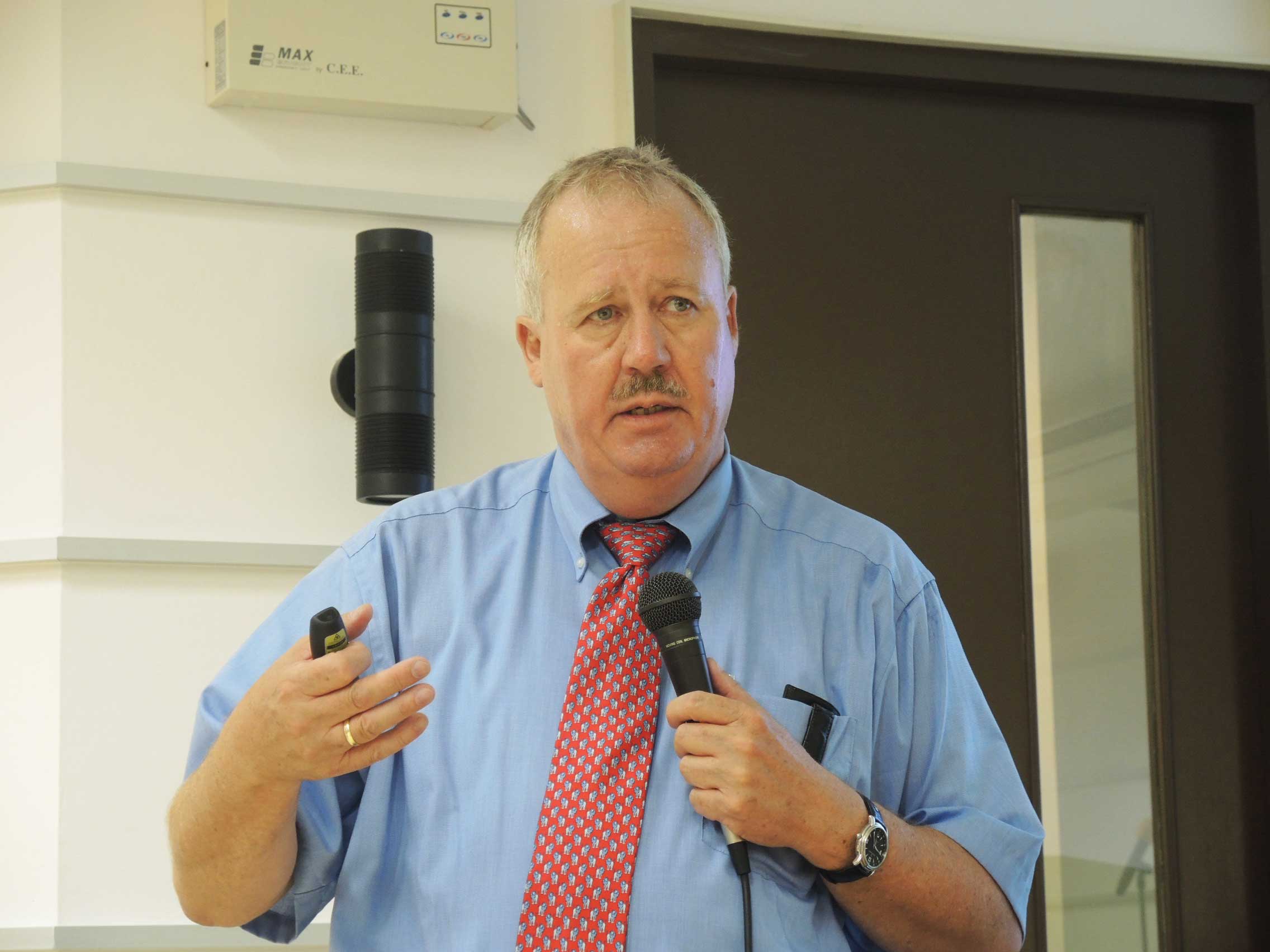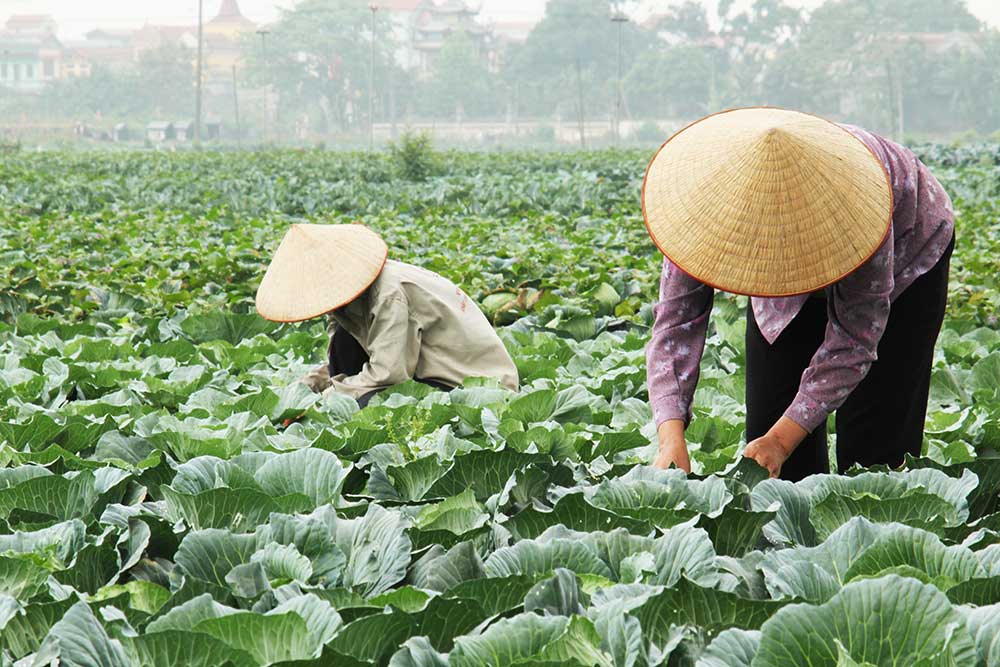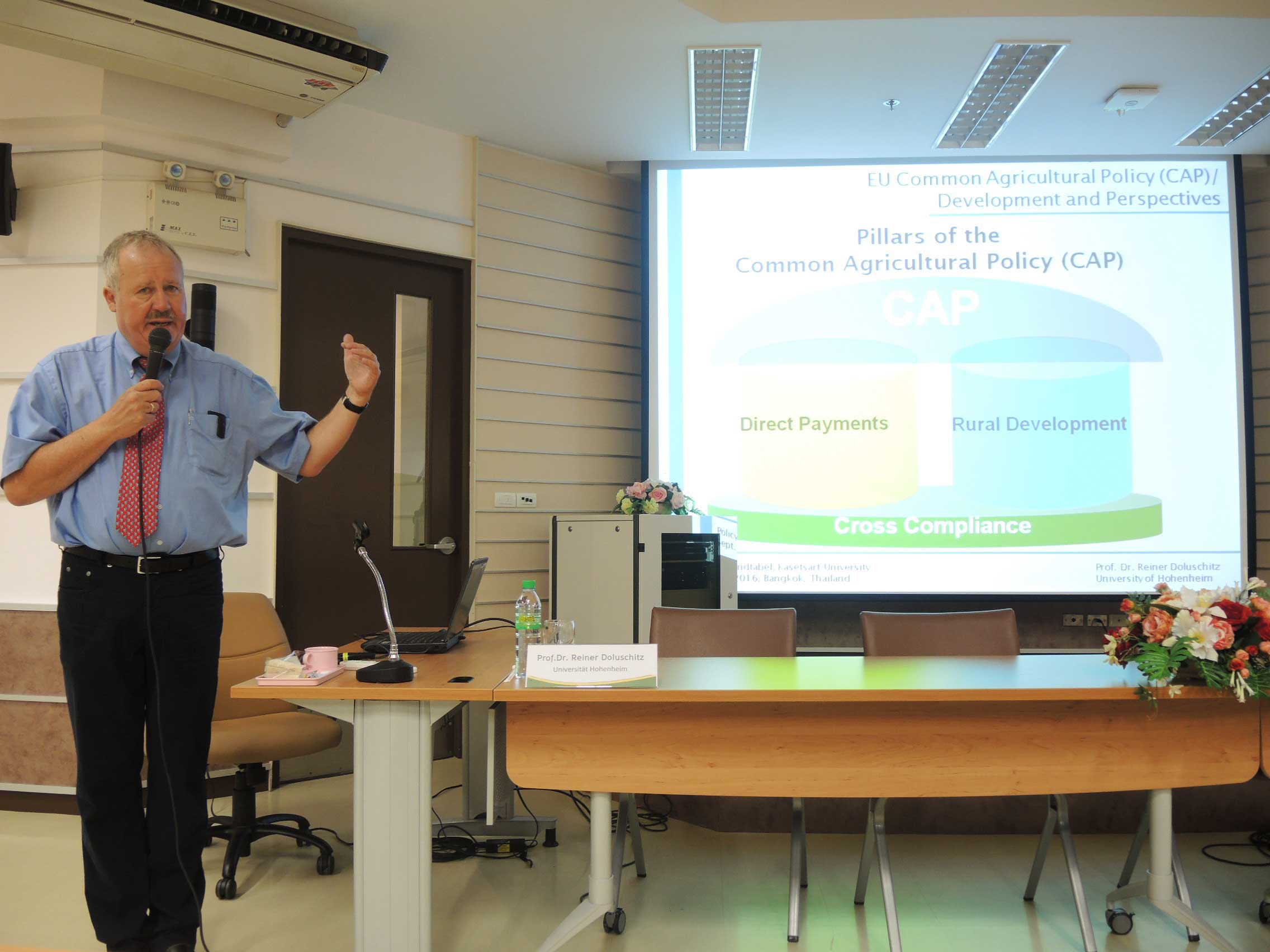
Writer: Santikorn Pakdeesettakul, Project Coordinator, Thai Rice (Nationally Appropriate Mitigation Action) NAMA
European Common Agricultural Policy is the agricultural policy of the European Union (EU) that implements a system of agricultural subsidies and other programmes to promote sustainable agriculture in EU.
In a seminar entitled ‘European Common Agricultural Policy’ Prof. Dr. Reiner Doluschitz from the Institute of Farm Management, University of Hohenheim, Germany explained that the rationale behind the formulation of the Common Agricultural Policy (CAP) is to overcome general challenges in agriculture sector such as food and nutrition, resources management and climate change. For example, EU will experience an increase in future food demand due to population growth while there will be a loss in agricultural productivity as a result of climate change impacts.

The seminar was organised by Faculty of Agriculture, Kasetsart University, Thailand on 20 September 2016.
The European CAP can be divided into two pillars which are Direct Payments and Rural Development Policy (RDP). However, this article will only focus on the first pillar, Direct Payment.
For Direct Payments, there are various schemes in which farmers can apply to receive financial support of up to 5,000 euros. This can be divided into compulsory schemes (must be implemented by all EU Member States) and voluntary schemes (as choices for Member States). However, the amount of financial support for each payment described below varies among European Member States.
Compulsory schemes consist of:
- • The Basic Payment: Member States will allocate almost 70 per cent share of their direct payments national fund to Basic Payment Scheme (BPS). Farmers must apply for the BPS to receive other direct payments such as the green direct payment, the redistributive payment and the payment to support areas with natural constraints and the payment for young farmers.
- • The Green payment: In addition to the BPS, each farmer will receive a payment per hectare for respecting certain agricultural practices beneficial for the climate and the environment. For example, farmers who conduct agricultural practices with less negative impacts on the environment will receive financial support of 300 euros per hectare.
- • The Young Farmers scheme: In order to encourage generational renewal in agriculture sector, Young Farmers (those under 40 and commencing their agricultural activity) will be topped up by an additional payment for a period of maximum 5 years.

Voluntary schemes comprise of:
- • Redistributive payment: Farmers will receive financial subsidy for the first 30 hectares (or up to the average farm size if higher than 30 ha). This payment favors small scale farmers by increasing their financial capacity to be more competitive with large scale farming businesses.
- • Payment for Areas with Natural Constraints: Member States may grant an additional payment for areas with natural constraints (as defined under Rural Development rules).
- • Voluntary coupled support: Member States may provide grant to create an incentive to maintain current levels of production for types of farming or specific agricultural sectors that are particularly important for economic and/or social and/or environmental reasons and undergo certain difficulties. The examples of potentially eligible sectors are fruit and vegetables, cereals, oilseeds, rice, nuts, beef and milk.
In order to receive the above Direct Payments and some other forms of support, farmers are required to abide with Cross-Compliance that covers the following key aspects such as food safety, public, animal and plant health, animal welfare, climate, environment, biodiversity and natural resources protection. Examples of Cross-Compliance are the protection of ground water against pollution as a results of agricultural activities, the maintenance of soil organic matter level through appropriate practices, the conservation of wild birds and natural habitats of wild flora and fauna, and the prohibition on the use of harmful substances in livestock farming.

Prof. Doluschitz pointed out that to ensure that farmers will follow the Cross-Compliance Member States will use their own administration and control systems to monitor by carrying out on-the-spot checks to verify whether farmers comply with their obligations. The financial support will be reduced if the farmer fails to comply with the rules. For non-compliance due to negligence, the reduction of financial subsidy shall varies from less than 5 per cent to no more than 15 per cent which is calculated based on severity, extent, permanence, reoccurrence of the specified infringement and the non-compliance. For intentional non-compliance, the reduction shall range from no be less than 20 per cent to 100 per cent.
Prof. Doluschitz concluded his presentation that the European CAP, which was formulated on the concept that the growth in agricultural production without having negative impacts on environmental conditions and internalization of external effects must be taken into account, supplemented by integrated rural development measures, will contribute towards sustainable agriculture in the European Union.
From the knowledge acquired in the seminar, there is a possibility that the European CAP should be adopted in ASEAN Member States to achieve sustainable agriculture and food security. In doing so, government agencies should play a key role in providing direct financial support to farmers to implement sustainable agriculture practices and indirect policy supports contributing to sustainable agriculture and food security. However, the government must have a system to monitor and follow up farming activities to ensure that farmers comply by the rules and regulations.